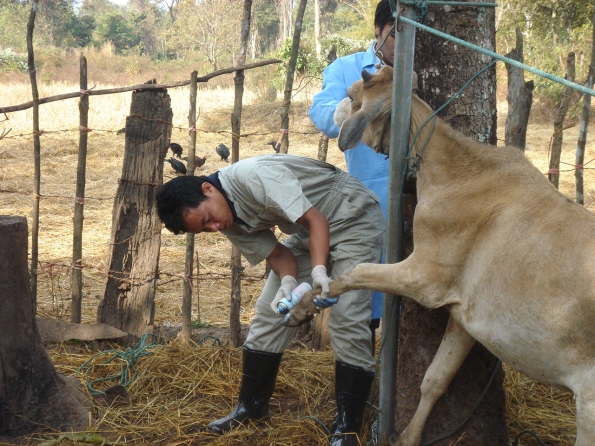



Article by: Hari Yellina
As Australia’s government introduces new measures to wash shoes at international airports, viral fragments of FMD and African swine fever have been found in imported meat. Both illnesses have spread throughout Asia, and an extensive outbreak of either cattle illness in Australia may have a catastrophic impact on the country’s economy. Australian Agriculture Minister Murray Watt stated that biosecurity authorities had recently found viral particles of FMD and African swine fever in pork products using “regular retail monitoring” operations. This discovery led to the deployment of citric foot mats at airports.
A few pork items imported from China that were being sold in the Melbourne CBD have FMD and African swine fever virus particles, according to Mr. Watt. In addition, numerous other pork products intended for retail sale tested positive for viral particles associated with African swine disease. “I’m informed that all items of this kind have currently been seized from all associated supermarkets as well as a warehouse in Melbourne,” the man stated. African swine fever and FMD fragments have already been discovered in imported pork products in Australia. Uncertain if this is the first occasion meat products have been removed from a grocery store or retail establishment after FMD or African swine disease particles were found. The frequency of biosecurity officers’ surveillance outside of Australia’s ports, airports, and mail facilities are likewise unknown.
The pieces, which differ from the live virus, don’t endanger human health, according to Mr. Watt, and Australia is still clear of FMD and African swine fever. “We have always maintained that the greatest threat to the entry of FMD into our nation comes from imported animal products. There is a chance that a traveller could bring it back in on their shoes, but according to the advice I’ve heard, bringing in animal products poses the greatest risk,” said he. In a recent flight from Indonesia to Australia, a passenger was “intercepted with a beef product that they didn’t declare, which tested positive for FMD viral pieces,” according to Mr. Watt.
One sample of food that was recently purchased and tested for FMD and African swine fever viral fragments in shops across Australia, but the test did not reveal a live virus, was positive. This sample came from pork floss that was being sold in Melbourne, according to the statement. “Pork floss is a dried, processed beef product that can only be imported if it complies with stringent requirements that reduce the risk of exotic diseases including FMD and African swine fever. Although the product was processed, there is no proof that the processing met Australia’s standards. Officers have taken items from all associated supermarkets and a warehouse in Melbourne out of an excess of caution.
Countries in the Middle East, Africa, Asia, and South America have all reported cases of FMD. The illness has not existed in Australia for more than a century. According to scientific estimates, there is an 11.6% chance that FMD may break out in Australia during the next five years. During that time, there is a 21% chance of an epidemic of African swine fever. In the case of lumpy skin condition, it is 28%. The government committed $14 million to biosecurity last week, which was followed by today’s statement.